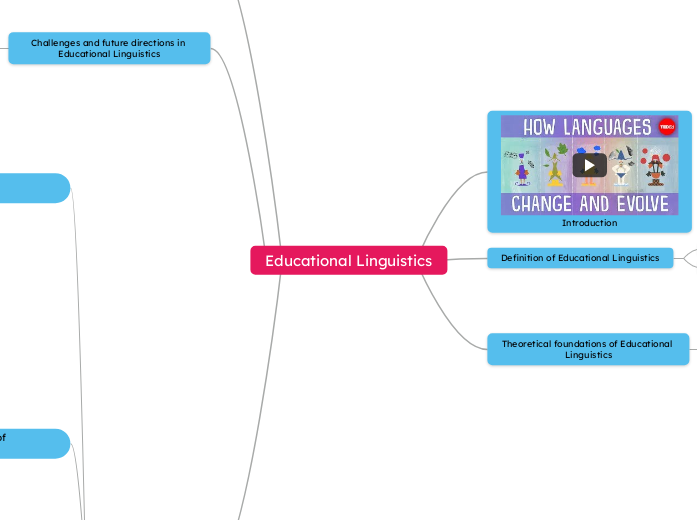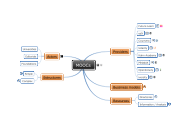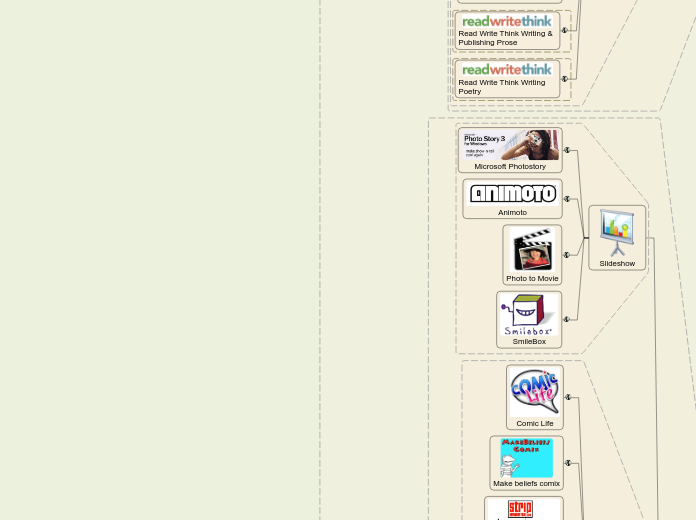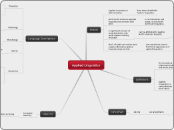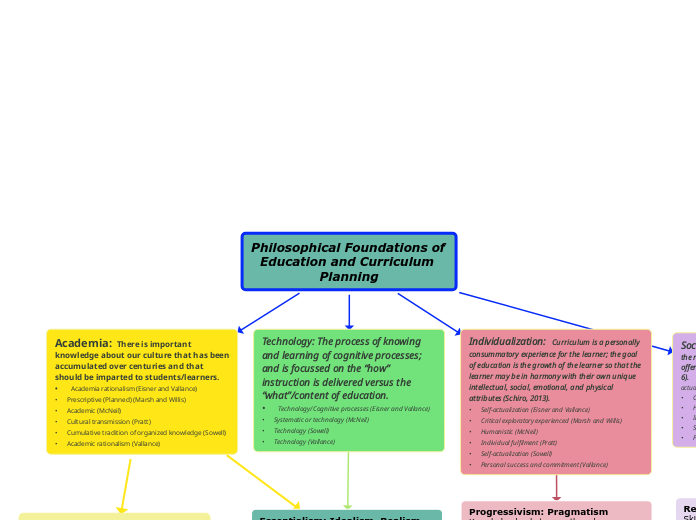Educational Linguistics
Detailed breakdown
Integration of research findings from different fields to inform educational practices
Collaboration between linguists
and other disciplines
educators
Investigating the role of artificial intelligence in language learning
Exploring the use of digital tools and online resources in language instruction
Promoting inclusive language policies and practices
Addressing linguistic biases and stereotypes in educational practices
Self-assessment and peer assessment techniques
Performance-based assessments (e.g
projects)
portfolios
Interpreting test scores and providing feedback to learners
Designing and administering assessments to measure language proficiency
Addressing language barriers that hinder access to education
Ensuring equal opportunities for learners from different linguistic backgrounds
Promoting language diversity and inclusivity
Implementing programs that support the use of multiple languages in education
Developing authentic and culturally relevant language materials
Creating language curricula that align with learner needs and goals
Incorporating technology in language lessons
Differentiated instruction to cater to diverse language learners
Formative and summative assessment techniques
Testing language skills (listening
writing)
reading
speaking
Task-based language learning
Communicative language teaching approach
Problem-solving strategies in language production and comprehension
Memory and attention in language acquisition
Stages of language development in children
The role of input and interaction in language learning
Planning for bilingual or multilingual education programs
Language policies in schools and their impact on language instruction
Sociocultural factors influencing language use in educational contexts
Dialectal differences and their effect on classroom communication
Understanding language in relation to teaching and learning processes
Application of linguistic theories and concepts to educational settings
Focus on phonetics
and pragmatics
semantics
syntax
morphology
phonology
Study of language and its structure
Challenges and future directions in Educational Linguistics
Interdisciplinary collaborations in educational research
Technological advancements and their impact on language learning
Inclusion and equity in language education
Applications of Educational Linguistics
Language assessment and evaluation
Alternative assessment methods
Standardized testing
Language policy and planning
Language rights and access to education
Multilingual education
Language teaching and learning
Curriculum design and materials development
Classroom instruction strategies
Theoretical foundations of Educational Linguistics
Applied Linguistics
Assessment and evaluation of language proficiency
Language teaching and learning methodologies
Psycholinguistics
Cognitive processes in language learning
Language acquisition and development in educational settings
Sociolinguistics
Language planning and policy in education
Language variation and its impact on education
Definition of Educational Linguistics
Integration of linguistics and education
Explanation of linguistics
Introduction
